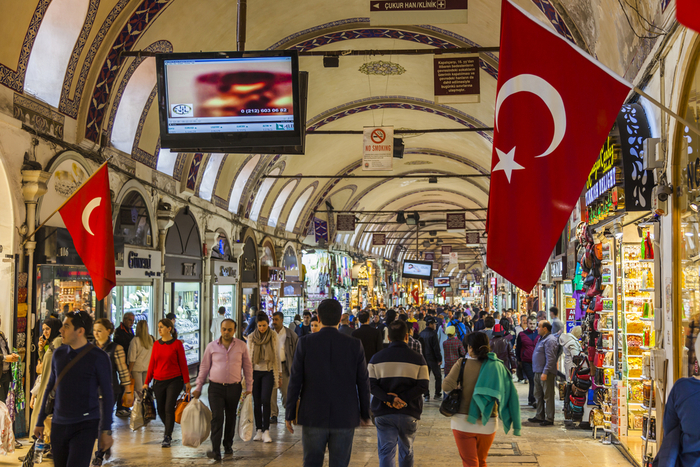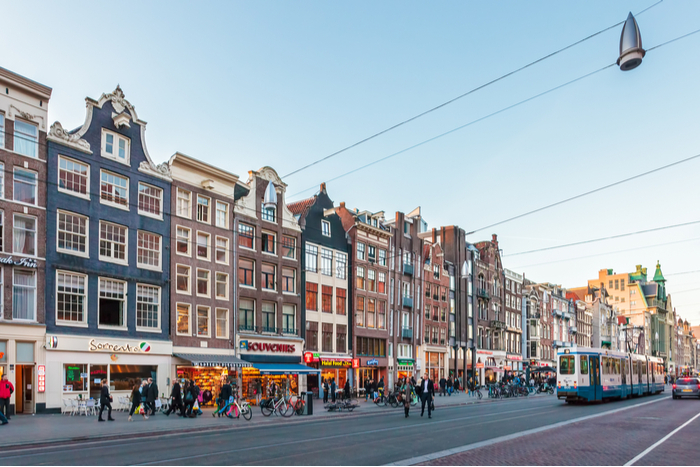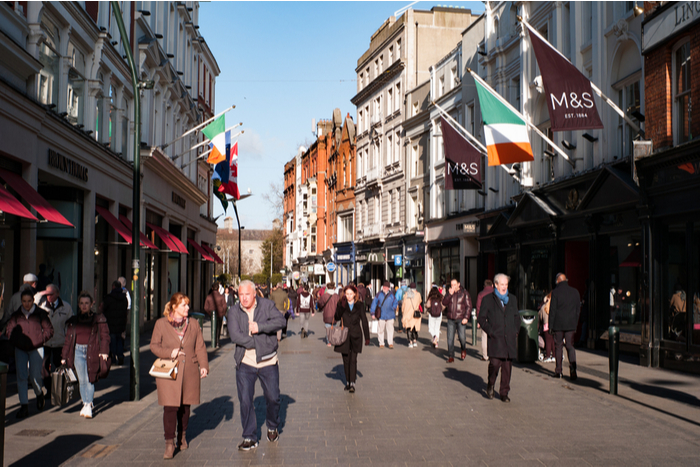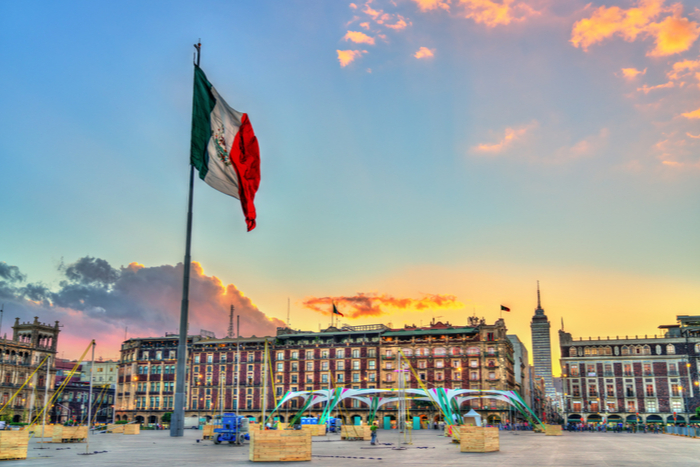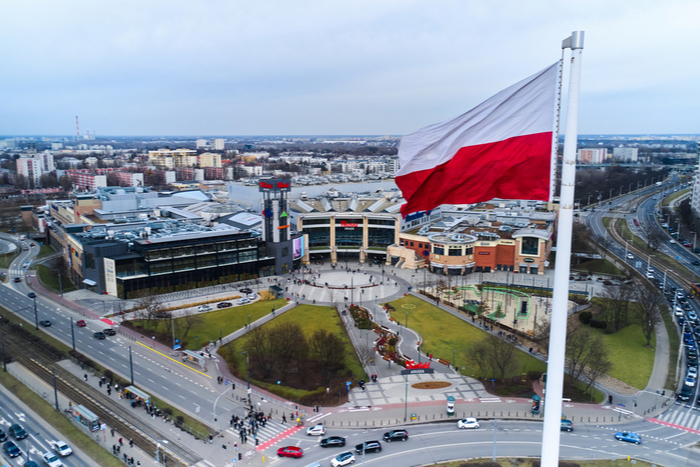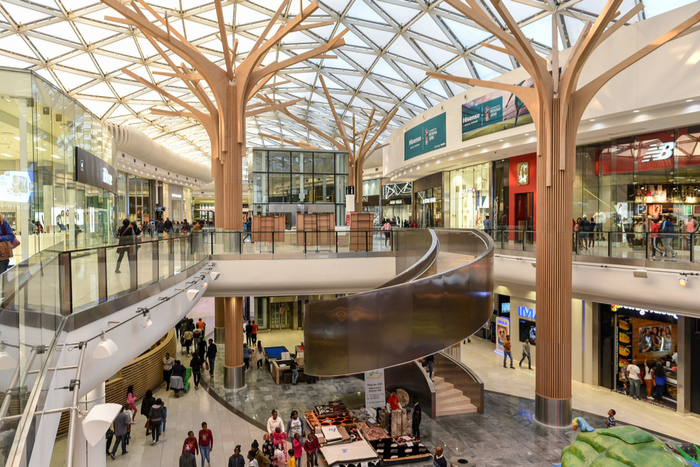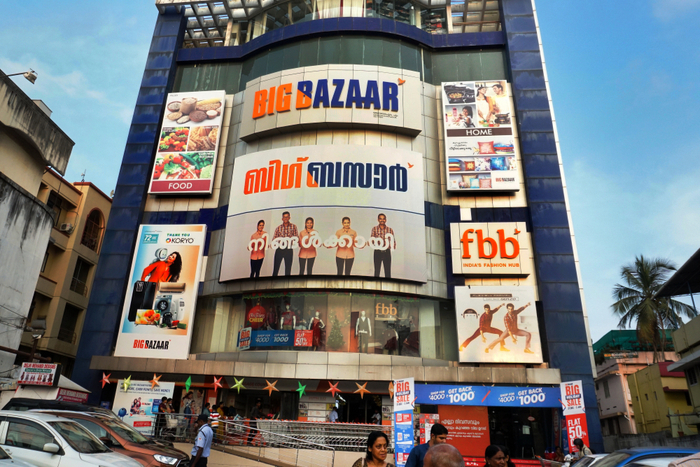With a population of over 82 million, Turkey is one of the most populous states in Europe – even if only a tiny fraction of its land is considered part of the region. In fact, only Germany and Russia are bigger, with populations of 83 million and 144 million respectively.
Turkey is one of the EU’s main partners in the Middle East and both are members of the EU–Turkey Customs Union. While it borders two EU member states, Bulgaria and Greece, negotiations around Turkey’s application to accede to the EU have not progressed since 2016.
Yet when compared to the 28 EU member countries as of 2019, Turkey has the highest proportion of young people aged 15-24, according to Turkish Statistics Institute. PwC said in a 2016 report that Turkey’s growing young population is “more eager to spend all provided significant opportunities for progress in the retail industry”.
Despite the Covid-19 pandemic affecting retailers globally, data firm Fitch Solutions predicted in a recent report that household spending in Turkey would begin to recover this year thanks to better employment figures and ongoing government stimulus measures.
Furthermore, a 2019 KPMG report found that the value of Turkey’s retail industry reached 1.1 trillion Turkish liras (£108 billion) and suggested a recovery in 2020. The sector is one of the biggest engines for the economy, employing over 1.9 million people.
There were a total of 453 shopping centres across the country as of 2018 and only five more opened in 2019. The report also showed that the rate of people using online channels for shopping reached 34 per cent in Turkey in 2019, up from 29.2 per cent in 2018.

Meanwhile, PwC said in its report that Turkey ranks among Europe’s top 10 in consumption expenditures and in the top five in food expenditures. At the time, Turkey is expected to sustain its five-year turnover performance, boasting an average growth rate. However, it’s important to note that PwC’s report was published in 2016.
Although organised retail has been grabbing a bigger share of Turkey’s retail industry, its percentage of the overall market still seems to be significantly lower than that in other developed countries.
The Turkish retail market mainly consists of traditional players, despite steady growth of local and international chain stores and recent acquisitions and mergers. Some of the biggest Turkish retailers include the likes of BİM A.Ş, Migros Ticaret A.Ş, A101, and CarrefourSA.
Discount chain A101 made an appearance as number 241 in the 2020 Global Powers of Retailing report, which is compiled by Deloitte and ranks 250 retailers of all types based on total revenue. And before the pandemic, BİM, Migros and A101 all made it to Deloitte’s 2019 Global Powers of Retailing Top 250 companies list.

While the hypermarket model is starting to establish itself in Turkey, food retail remains comparatively fragmented.
During the pandemic – with the first case declared on March 11, 2020 in Turkey – grocery stores remained open and operational while shopping centres closed down. Similar to the UK, grocers had record sales turnovers of food and beverages, especially before the mandatory weekend lockdowns in major cities in Turkey.
The food retail sector in Turkey can be put into two major groups: organised and unorganised retailers. Organised retailers include multi-format retailers, local or regional supermarkets, and discount retailers. Unorganised retailers, also called the traditional market, constitute smaller, individual convenience stores called bakkals in bazaars.
PwC found that traditional and organised retail segments account for 67 per cent and 33 per cent of the Turkish retail industry, respectively.
Historically, food was bought and sold at small local bazaars. These tiny outlets are similar to convenience stores found in other nations in that they offer a collection of essential products in local locations. In the vast majority, these are family-owned and are not operated by any major corporation, even as franchises.

Arguably, Turkish consumers stick to their traditional shopping habits as many prefer low-priced, open-air neighbourhood markets which offer a large range of consumer products, such as fresh fruit and vegetables.
Yet supermarkets, particularly discount stores, are securing more retail space across Turkey. Chains such as BİM A.Ş, A101, and Migros Ticaret A.Ş have invested heavily in bricks-and-mortar operations and opened up hundreds of new shops over the past year.
The retail sales volume in Turkey increased by 4.2 per cent in October 2020 compared with the previous month, according to findings by Turkish Statistics Institute. In the same month, food and drinks sales increased by 4.3 per cent, while non-food sales increased by 4.7 per cent.
Sales of computers, books, and telecommunications equipment rose by 7.1 per cent during the period, while electronic goods and furniture sales also rose by 15.4 per cent. But sales of textiles, clothing, and footwear fell by 10 per cent as a result of the Covid-19 pandemic.
At the same time, online sales throughout the country increased by 98.3 per cent. Just like the rest of the world, ecommerce boomed in Turkey at a time when people were told to stay home.
Some of the biggest online retailers include Getir, Teknosa, and Hepsiburada, while Amazon remains Turkey’s second-biggest ecommerce website.

Neil Kuschel, chief executive of cross-border solutions Global-e, said that according to recent research, the country with the strongest rise in online shopping during Covid-19 was Turkey.
With the increasing number of online shoppers, Turkey presents an opportunity for international merchants to drive global sales.
“Retailers looking to expand into the Turkish market should keep in mind that, like other online shoppers across the globe, the Turkish online consumer is seeking a seamless experience, that feels local and familiar,” Kuschel told Retail Gazette.
“Global-e’s data shows that 92 per cent of cross-border shoppers in Turkey choose to pay in their local currency when given the option, indicating the importance of presenting prices in this currency, rounded according to the common rules in this market and allowing shoppers to browse and pay in this currency, when buying from international websites.”
Kuschel added that 50 per cent of Turkish cross-border online shoppers choose to check out and complete their purchase in their local language, indicating the importance of offering this option.
“Local tax – the standard rate of VAT in Turkey is 18 per cent and the reduced rate of VAT is eight per cent for textile products including bags, shoes, apparel, etc – and import duties [which] varies in different categories apply to every purchase,” he explained.
“Accordingly, it is important to provide local shoppers with a guaranteed calculation of the fees that will be added to their order, based on the cart and the products they are purchasing.
“The country with the strongest rise in online shopping during Covid-19 was Turkey”
“At least 80 per cent of local shoppers in Turkey opt to pre-pay their duties and taxes at checkout when given the option.
“Despite new online payment methods having been introduced in this market in the last few years, international credit cards still dominate as a preferred payment method for Turkish shoppers. Returns rate in this market is 40 per cent lower than the global average.”
Before the pandemic, the Turkish economy had endured a currency shock, diminishing purchasing power, soaring inflation, and decreasing consumer confidence since 2018. In the second quarter of that year, the country’s economy witnessed a slowdown in its growth due to high inflation, rising borrowing costs, and correspondingly rising loan defaults.
The Turkish Statistical Institute said the Turkish economy experienced its sharpest reversal since 2009, contracting by three per cent in the last quarter of 2018 year-on-year, thus officially entering a technical recession. As a result, annual GDP growth fell from 7.4 per cent in 2018 to 2.6 per cent.
The drop in the value of the Turkish lira not only led to an increase in the number of tourists in Turkey, but also affected the retail expenditures of foreign tourists, particularly in the luxury retail sector.
One of the largest shopping centres in Istanbul – İstinyePark – which houses luxury retailers such as Rolex, Cartier, Gucci, Fendi, Chanel and Louis Vuitton – witnessed the number of tourists surge by 30 per cent year-on-year in 2019.
“The rise of the euro has contributed to the turnover of luxury brands,” İstinyePark General Manager Uğur Berk said at the time.
“Visitor figures to the shopping malls have increased significantly. It is also observed that tourists are making mass purchases. This applies not only to the luxury brands, but also to the other brands.”
Yet Turkey’s luxury sector still witnessed a decline in growth in 2019 despite the increase in tourism, according to Euromonitor.
Last year, the pandemic led to a decrease in tourism, which came as a further blow to Turkey’s luxury retail sector. The country had imposed a light lockdown in the spring, shutting its borders and limiting domestic travel, but never shut down the economy completely like many of its European and Middle Eastern neighbours.
Turkey also hired international specialist companies such as Bureau Veritas and Ecolab to elaborate its own country-wide uniform set of measures and its own certification of tourism establishments as a way to restart and maintain a functional and profitable tourism sector.
Turkey reopened for international travellers in the last week of July 2020 but since then the rules around entry have changed. Despite this, luxury business online platform CPP Luxury said in October 2020 that Turkey continued to be a “major tourist destination” despite the crisis.
Kuschel also told Retail Gazette that Turkey presented an opportunity for luxury brands to grow international online sales.
“In order to be successful in this market, it’s important that these brands set up the right offering that appeals to the local consumer and meets their expectations,” he argued.
“The average order value for cross border online purchases is 45 per cent higher than the global average, indicating the local appetite for international luxury brands, with 50 per cent of online orders coming from this market from leading global luxury brands.
“With a low duties and taxes threshold, luxury brands selling to this market are advised to absorb these additional fees in the product price while informing their shoppers no additional cost will be added to their purchase upon delivery.
“Due to the high average order value of luxury goods, offering free express shipping has a positive impact on conversion rates and can help drive sales in this market.”
Click here to sign up to Retail Gazette‘s free daily email newsletter

